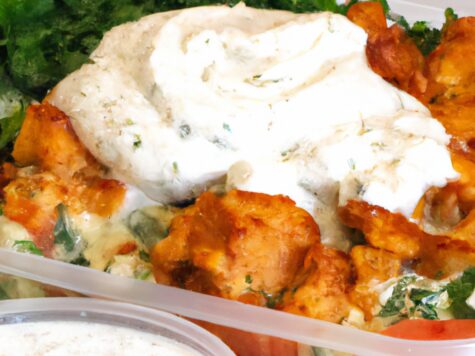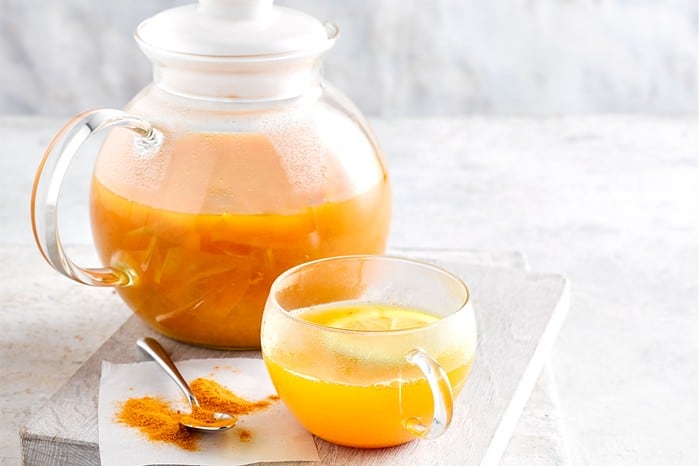What is acid reflux?
Acid reflux, also known as heartburn or dyspepsia, is one of the most common digestive complaints. Symptoms vary from a warm to a burning pain felt in the middle of the chest, which may rise up to the throat with some sufferers complaining of an unpleasant taste in the mouth and bad breath.
The symptoms are a direct result of the acidic contents of the stomach travelling up the food pipe or oesophagus. If this happens consistently and over time it may cause damage and inflammation, and potentially develop into a more serious condition, such as Barrett’s oesophagus.
Discover our full range of health benefit guides and learn more about how to eat for acid reflux and which foods to avoid.

What are the most common drinks to trigger acid reflux?
Here are some of the most likely triggers, why they might be a problem and what you might choose instead. It’s worth remembering that, where drinks and reflux are concerned, there is limited substantiated evidence, so it may take trial and error to find the drink that is best suited for you.
Coffee
A consistent intake of caffeine-containing drinks may worsen symptoms for some sensitive people.
What to drink instead
- Decaffeinated alternatives
- Some herbal teas
Alcohol, including beer and wine
Compounds in alcoholic drinks loosen the sphincter muscle that controls the opening between the stomach and oesophagus. Symptoms are normally experienced within the first hour of consumption.
What to drink instead
Citrus juice
As their name suggests these contain citric acid and their low pH is thought to exacerbate reflux symptoms.
What to drink instead
Tomato juice
The acid content, although lower than other juices, may be the mechanism behind the link with reflux symptoms.
What to drink instead
• Papaya juice
Carbonated drinks
Fizzy drinks cause abdominal distension which puts pressure on the sphincter muscle. These drinks may also be a source of caffeine.
What to drink instead
What are the best drinks for acid reflux?
Minimising the triggers for your reflux is key to management, but there are some drinks that may soothe and even alleviate symptoms – here are some drinks to try.
Ginger tea
Known as a carminative, ginger has been seen to lower the pressure on the oesophageal sphincter and as such alleviate reflux and dyspepsia. Ginger is a natural anti-inflammatory and widely recognised for its gut-soothing properties.Enjoy ginger tea in a wide variety of ways including with a little lemon and honey; although lemon is generally considered acidic, a small amount of juice in warm water in combination with honey appears to have an alkalising effect that may help neutralise stomach acidity.
Marshmallow root tea
This brown, fibrous root has beneficial properties thanks to the mucilage-like substance it is naturally rich in. This effectively lines the digestive tract, including the oesophagus, protecting it from irritation and potential damage, it may also stimulate cell renewal. The tea may be made by pouring boiled water over the dried root, leaving it to steep, then straining – sweeten with a little honey, if you wish.
Liquorice tea
From the root of the liquorice plant, liquorice tea has a naturally sweet flavour making it a popular herbal infusion. With a long history of use for digestive issues including nausea, indigestion and to ease the symptoms of an ulcer, liquorice is available in a variety of forms including as a tea. It’s considered a soothing and comforting drink, and may help ease the symptoms of indigestion.
The active component of liquorice is glycyrrhizin – responsible for liquorice’s sweet flavour, this compound also acts on the kidneys, causing potassium levels to drop and, as a result, blood pressure to rise. For this reason, consumption should be limited and if you have a history of heart or blood pressure issues, are on prescribed medication, including warfarin or hormone replacement therapy, you should refer to your GP before consuming liquorice.
Other herbal teas
As with many natural remedies there is sadly a lack of substantiated evidence to confirm their effectiveness for acid reflux, despite having proven uses for other digestive issues, examples being chamomile and fennel. If you want to give them a go, why not start with our delicious chamomile tea?
Water
Most notably, mineral water with an alkaline pH – this may reduce the acidity of the stomach and help to denature the enzyme pepsin. It’s this digestive enzyme that is thought to be responsible for much of the damage associated with reflux. Normal tap water has a neutral pH of about 7.0, whereas alkaline water has a pH of about 8.8-9.0. Look for a mineral water with higher levels of natural bicarbonate, calcium, magnesium and potassium. More research is needed to clarify these specific benefits, but for most people drinking more water has far-reaching health benefits.
Plant-based or low-fat dairy milk
Some people report that whole fat dairy milk worsens their symptoms, and this is probably due to its higher fat content; lower-fat dairy and plant-based alternatives, such as oat or almond, may be more soothing. Check labels and opt for fortified versions of plant-based milk, where possible. Try our tasty banana, honey & hazelnut smoothie.
Coconut milk and coconut water
These may help to soothe symptoms because the milk has anti-inflammatory properties, while the water contains electrolytes that help promote pH balance and buffer the high acidity associated with reflux. Try it yourself in our keto smoothie.
Smoothies and vegetable juices
It’s important to remember that some juices are highly acidic, and so may aggravate symptoms. However, fruit and vegetables have many benefits and studies suggest people with the highest intake have a lower risk of reflux and appear better able to tolerate and manage symptoms. Good choices include melon, papaya, celery, carrot and aloe vera. Give it a go with our fresh-tasting celery juice.
Can lifestyle changes help manage my reflux?
In addition to working out your drink triggers, making simple lifestyle changes and implementing some modifications at home may help. For example, if you suffer with symptoms during the night, elevating the head of your bed by 10-20cm may alleviate them. Similarly, avoid bending or lying down after eating or drinking, and avoid tight-fitting clothes.
Don’t forget…
It is important not to ignore symptoms and to refer to your GP if you experience any of the following:
- Heartburn most days for three weeks or more
- You’ve been taking antacids for four weeks or more
- You have symptoms such as weight loss, nausea or difficulty swallowing in conjunction with your heartburn
If you’re considering a change in diet, please consult your GP beforehand to ensure you can do so without risk to health.
Want more like this? Try…
What supplements should I take?
Top 5 health benefits of cinnamon
Top 5 health benefits of bananas
Healthy breakfast recipes
Energy-boosting dinner recipes
Healthy, colourful recipes
Do you have a question about acid reflux? Ask our team in the comment section below.
This article was published in November 20220 by Kerry Torrens.
Kerry Torrens BSc (Hons) PgCert MBANT is a registered nutritionist with a postgraduate diploma in Personalised Nutrition & Nutritional Therapy. She is a member of the British Association for Nutrition and Lifestyle Medicine (BANT) and a member of the Guild of Food Writers. Over the past 15 years she has been a contributing author to a number of nutritional and cookery publications including BBC Good Food. Find her on Instagram at @kerry_torrens_nutrition_
All health content on bbcgoodfood.com is provided for general information only, and should not be treated as a substitute for the medical advice of your own doctor or any other healthcare professional. If you have any concerns about your general health, you should contact your local healthcare provider. See our terms and conditions for more information.







